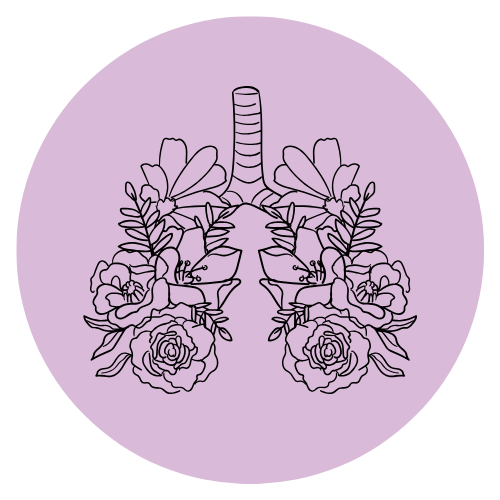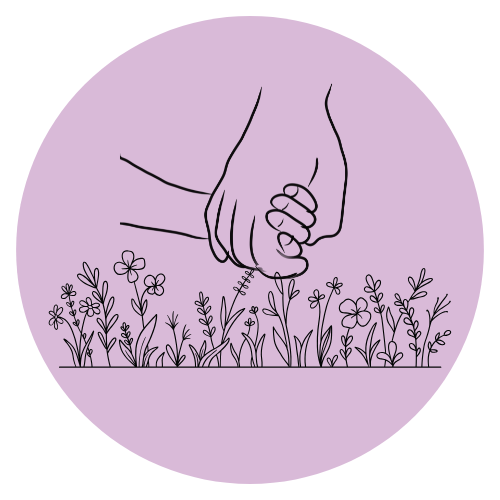You deserve therapy services that are as unique as you are.
At Cassandra Michelle Wellness, your services will include a unique blend of traditional and holistic strategies for driving introspection, growth, and integration. You are invited to be a co-creator of your healing and wellness journey.
Below are some tools I typically use:
EMDR
Eye movement desensitization and reprocessing (EMDR) uses bilateral stimulation to mimic the process our brains use during REM sleep. By alternating sensory stimuli across the midline, we can uncover hidden associations and unlock our natural ability to heal. EMDR works with our memory consolidation system to transition traumatic memories from where they are stuck in the “present” to where they belong in long-term storage.
Polyvagal Theory & Somatic Processing
So much trauma is stored in our bodies, and physical manifestations are common. Our autonomic nervous system (ANS), and the vagus nerve associated with it, regulates aspects of our social engagement, sense of safety, and mobilization behaviors. It is heavily connected to heart rate, digestion, and breathing. Somatic exercises that help regulate the vagus nerve can be instrumental in finding relief from trauma symptoms.
Client-Led Spirituality
Spiritual beliefs and connection to a higher, divine power can be some of the most powerful healing tools available. There are gifts that can support healing in all of the wisdom traditions of the world. I work with clients to incorporate their religious and spiritual beliefs into their restoration process.
Collective Memory & Mythology
In Western culture, we have become woefully disconnected from our collective memory and the stories that carried us for millennia. The inspirational archetypes offered in mythology and folklore are compelling tools for exploring identity, role, and connection.
DBT
Dialectical Behavior Therapy (DBT) brings several useful tools for emotional regulation, distress tolerance, and interpersonal skills. In my practice, I incorporate strategies and skills from this modality to help clients manage the intense emotions and symptoms that sometimes arise in response to trauma.
Intergenerational Trauma Exploration
Trauma and pain are often transmitted from one generation to the next for a variety of reasons. Exploring this phenomenon can be helpful in processing our own trauma and finding a level of forgiveness, acceptance, and understanding around those experiences that have hurt us.
IFS
Internal Family Systems (IFS) explores the different parts of ourselves that arise and develop in response to the stressors in our lives. We can use this framework to investigate the relationships between these parts, their goals, and strategies for supporting them into wholeness.
Nature-Based Therapy
Humans are nature, but we have forgotten. Increasingly, science is catching up to what ancient cultures have always known: our health and wellness is directly, inextricably linked to the land.
Social Justice Theories
None of our experiences happen in a vacuum. Our culture’s construction of our identities have very real impacts on our daily lives., It is crucial to unpack the way these factors intersect with our personal trauma to create our unique experience.
ACT
Acceptance and commitment therapy (ACT) offers tools that develop mental flexibility and radical acceptance around our thoughts and feelings, even uncomfortable ones. By learning to stop resisting, and simply observing and accepting our internal and external experiences, we can make conscious choices to live in closer alignment with our deeper values.
Reparenting & Inner Child Work
Our caregivers may (or may not) have done their best, but there were likely things that we were hurt by during our experience growing up. That child is still inside somewhere, and sometimes takes control when we feel unsafe. As adults, we have the opportunity to change that story for ourselves. This process involves learning to step into the role of a loving adult who can act with the kind of caregiving we needed.
Narrative Therapy
The stories we tell about our past affect us. Hearing those stories out loud, and introducing our adult perspectives, can be transformative. By collaborating on these stories, we can work together together to add moments of strength, insight, and inspiration for the future.
CBT
Our minds are extremely susceptible to focusing on negativity and constantly looking for problems. Cognitive behavioral therapy (CBT) helps us look closely at our thought patterns and find opportunities to challenge, disrupt, and re-script these thought patterns.
Routine & Self-Care Strategies
The routines and rhythms we keep can have an enormous impact on our daily wellness. These systems can carry us through fluctuations in our mood, different seasons of life, and periods of increased stress or chaos.
Life Experience & Clinical Wisdom
I welcome the serendipitous moments that arise in sessions. Sometimes I am reading a book or attending an event that feels like it is calling a client’s name. After working in the mental health field for over a decade, I have developed my own clinical wisdom that is a blend of the many moments I’ve experienced with clients. This helps guide me in a more intuitive way to identify and offer something that might be helpful.
Sources for therapeutic tools used in my practice:
◈ Allen, B., & Hoskowitz, N. A. (2014). Trauma-focused cognitive-behavioral therapy: An overview. In B. Allen & M. Kronenberg (Eds.), Trauma-focused cognitive-behavioral therapy (pp. 1-14). New York: The Guilford Press.
◈ Bryon D. (2021). Processing trauma in psychoanalysis in 'real' time and in dreams: the convergence of past, present and future during COVID-19. The Journal of analytical psychology, 66(3), 399–410. https://doi.org/10.1111/1468-5922.12695
◈ Blackie, S. (2016). If Women Rose Rooted: The Journey to Authenticity and Belonging. September Publishing
◈ Blackie, S. (2022). Hagitude: Reimagining the second half of life. New World Library.
◈ Hayes, S. C., Strosahl, K. D., & Wilson, K. G. (2012). Acceptance and commitment therapy: The process and practice of mindful change (2nd ed.). Guilford Press.
◈ Linehan, M. M. (1993). Cognitive-behavioral treatment of borderline personality disorder. Guilford Press .
◈ Linehan, M. M. (1993). Skills training manual for treating borderline personality disorder. Guilford Press .
◈ Linehan, M. M., Armstrong, H. E., Mizner, K. L., & Herman, R. A. (1991). Cognitive-behavioral treatment of chronically suicidal and borderline-diagnosed individuals. The American journal of psychiatry, 148(11), 1454–1460.
◈ Linehan, M. M., Korslund, K. E., Harned, M. S., Gallop, R. J., Lungu, A., Neacsiu, A. D., McDavid, J., Comtois, K. A., & Murray-Gregory, A. M. (2015). Dialectical behavior therapy for high suicide risk in individuals with borderline personality disorder: a randomized clinical trial and component analysis. JAMA psychiatry, 72(5), 475–482. https://doi.org/10.1001/jamapsychiatry.2014.3039
◈ Porges S. W. (2001). The polyvagal theory: phylogenetic substrates of a social nervous system. International journal of psychophysiology : official journal of the International Organization of Psychophysiology, 42(2), 123–146.
◈ Porges S. W. (2022). Polyvagal Theory: A Science of Safety. Frontiers in integrative neuroscience, 16, 871227. https://doi.org/10.3389/fnint.2022.871227
◈ Schwartz, R. C. (1995). Internal family systems therapy. Guilford Press.
◈ Schwartz, R. C. (2001). Introduction to the internal family systems model. In The comprehensive handbook of psychotherapy: Integrative/eclectic (Vol. 4, pp. 455–474).
◈ Shapiro, F. (1989). Eye movement desensitization: A new treatment for post-traumatic stress disorder. Journal of Behavior Therapy and Experimental Psychiatry, 20(3), 211–217.
◈ Shapiro, F. (1989). Efficacy of the eye movement desensitization procedure in the treatment of traumatic memories. Journal of Traumatic Stress, 2(2), 199–223.
◈ van der Kolk, B. A. (2014). The body keeps the score: Brain, mind, and body in the healing of trauma. Viking.
◈ White, M., & Epston, D. (1990). Narrative means to therapeutic ends. W. W. Norton.














